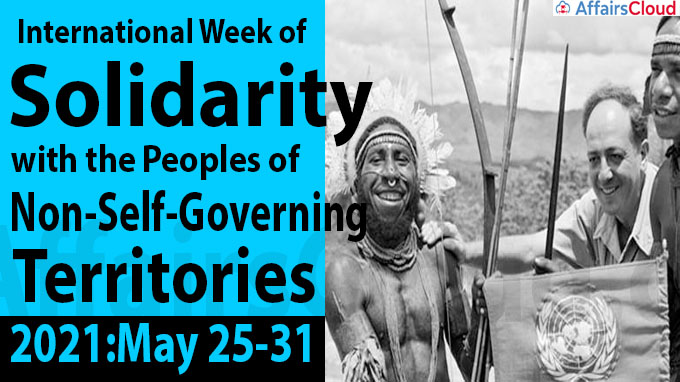 The United Nations(UN)’s International Week of Solidarity with the Peoples of Non-Self-Governing Territories is annually observed across the globe from 25th to 31st May.
The United Nations(UN)’s International Week of Solidarity with the Peoples of Non-Self-Governing Territories is annually observed across the globe from 25th to 31st May.
Aim:
- To take effective measures to protect and guarantee the inalienable rights of the people of the Non-Self-Governing Territories to their natural resources, including land.
- To establish and maintain control over the future development of those resources and request the administering powers to take measures to protect the property rights of the peoples in these Territories
Background:
i.The United Nations General Assembly(UNGA) adopted the resolution A/RES/54/91 on 6th December 1999 and decided the annually observe the International Week of Solidarity with the Peoples of Non-Self-Governing Territories starting from May 25.
ii.The week was first observed in 2000.
Non-Self-Governing Territories:
According to the UN Charter, a Non-Self-Governing Territory is defined as a Territory “whose people have not yet attained a full measure of self-government.”
History:
i.Various member states of the UN like, Australia, Belgium, Denmark, France, the Netherlands, New Zealand, the United Kingdom and the United States has listed 72 territories under their administration as non-self-governing territories.
ii.Before 1959, 8 of these territories became independent.
iii.As a result of decolonization, most of the territories were removed from the list and at present there are around 17 non-self-governing territories.




